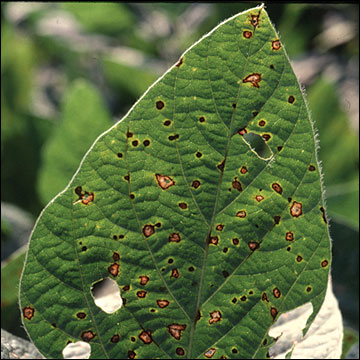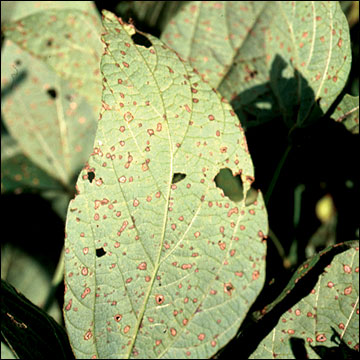Frogeye leaf spot
Cercospora sojina
 Upper leaf surface
Upper leaf surface
 Lower leaf surface
Lower leaf surface
Upper leaf surface symptoms
Lesions of frogeye leaf spot are small, circular to somewhat irregular spots that develop on the upper leaf surfaces. Initially the spots are dark and water-soaked in appearance. As the lesions age, the center becomes light brown to light gray in color. Although lesions may merge to kill large areas of leaf tissue, the individual lesions do not increase significantly in size (~0.25 inch in diameter) Older lesions have a light center with a darker red to purple-brown border.
Lower leaf surface symptoms
Lesions are evident on the lower leaf surface and appear similar t those on the upper leaf surface.
Canopy symptoms
Young leaves are more susceptible than older leaves to infection. The disease may be evident throughout the canopy of the plant, if weather conditions remain favorable for disease development.
Weather
Development of frogeye leaf spot is favored by warm, humid weather. Spores are spread short distances by wind or splashing rain. Dry weather severely limits disease development.
Survival
The fungus that causes frogeye leaf spot survives in infested soybean residues and infected seed.
Distribution in Missouri
Until about 1998 frogeye leaf spot was found only in the southern parts of Missouri. Since then the distribution of this disease has expanded and it is now found throughout the state.